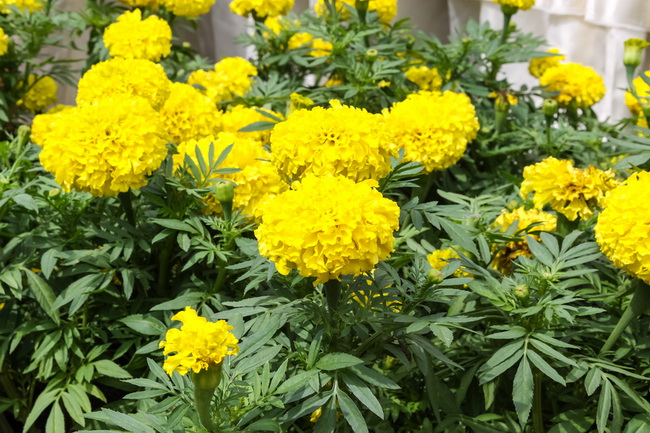- Make It Yourself Lavender Heart-Shaped Bath Bombs!
- 20 Things You Never Knew About “Down There”
- 12 Best Foods For Those Suffering From Arthritis Pain
- 12 Personal Hygiene Mistakes Almost Everyone Makes (Mom Never Told You About #4!)
- 15 Medicinal Plants And Herbs From The Cherokee People
- 12 Mind-Blowing Benefits Of Drinking Coconut Water During Pregnancy
- 12 Outstanding Winter Foods That Won’t Fatten You Up Like A Christmas Turkey
20 of the Most Underused and Little Known Healing Herbs on the Planet

Photo credit: bigstock.com
17. Hyssop
One of the oldest known medicinal herbs around. Closely related to oregano, hyssop (hyssopus officinsalis) is a powerful anti-microbial herb that is great at removing harmful bacteria from the body which causes respiratory and skin infections. Hyssop can also help fight fungal infections, influenza virus, and even strep throat. Hyssop is easy to grow and has absolutely gorgeous purple flowers.
18. Marigold
Marigold is an extremely popular fall flowering plant but is rarely thought of for its medicinal compounds. Marigold (calendula officinalis) is one of the best herbs for fighting inflammatory skin problems such as rashes, acne, and eczema. It naturally lowers fevers and can reduce the swelling of joints. This beautiful plant can fight headaches, and even block the histamines which cause allergy symptoms. Many people use hair rinses that contain marigold to nourish the scalp and to help naturally cover greying hair.
19. Winter Savory
Even the name sounds tasty, doesn’t it? Winter savory (satureja montana) is edible and is very effective for reducing the pain and irritation from bee stings and insect bites. This herb has natural antiseptic compounds and will also help stop infections from bug bites and other wounds. Tea made from winter savory will help to soothe a sore throat and eases indigestion.
20. Lady Ferns
These are long, very light green colored plants that are native to the northern hemisphere and are one of the oldest plants alive. Sometimes called fiddlehead ferns, these plants help stop fevers and coughs, and help fight respiratory problems such as asthma, bronchitis, and pneumonia. Lady ferns also prevent worm or parasite infestation and are great for healing cuts and sunburns.
If you are taking prescription medication or if you are under a doctor’s care, always consult with your physician before consuming any herbs to ensure that you do not experience an adverse reaction or that there are no drug interactions with the herbs you would like to consume.
References:
































